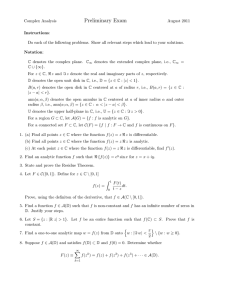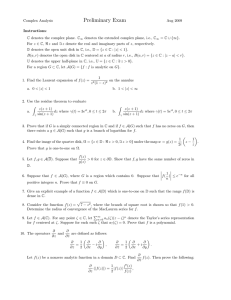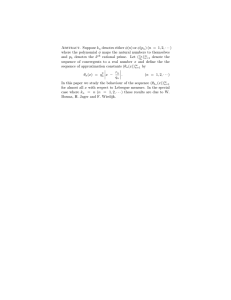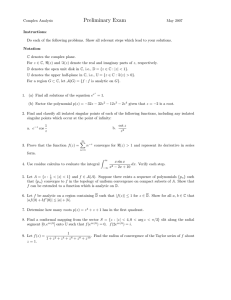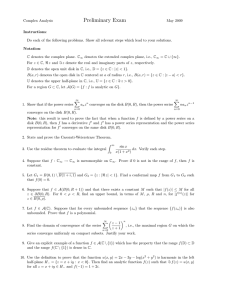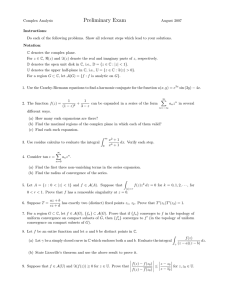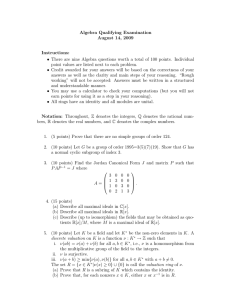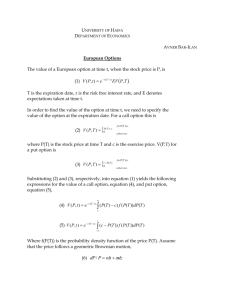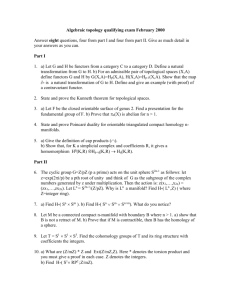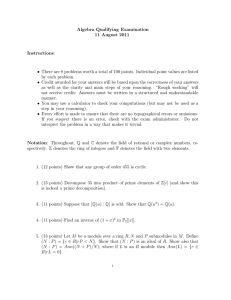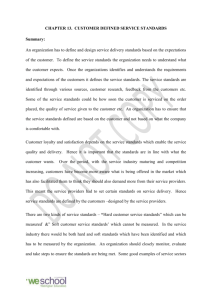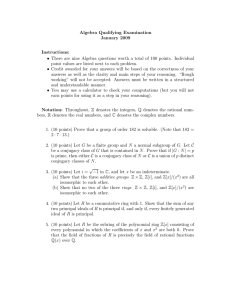Preliminary Exam
advertisement
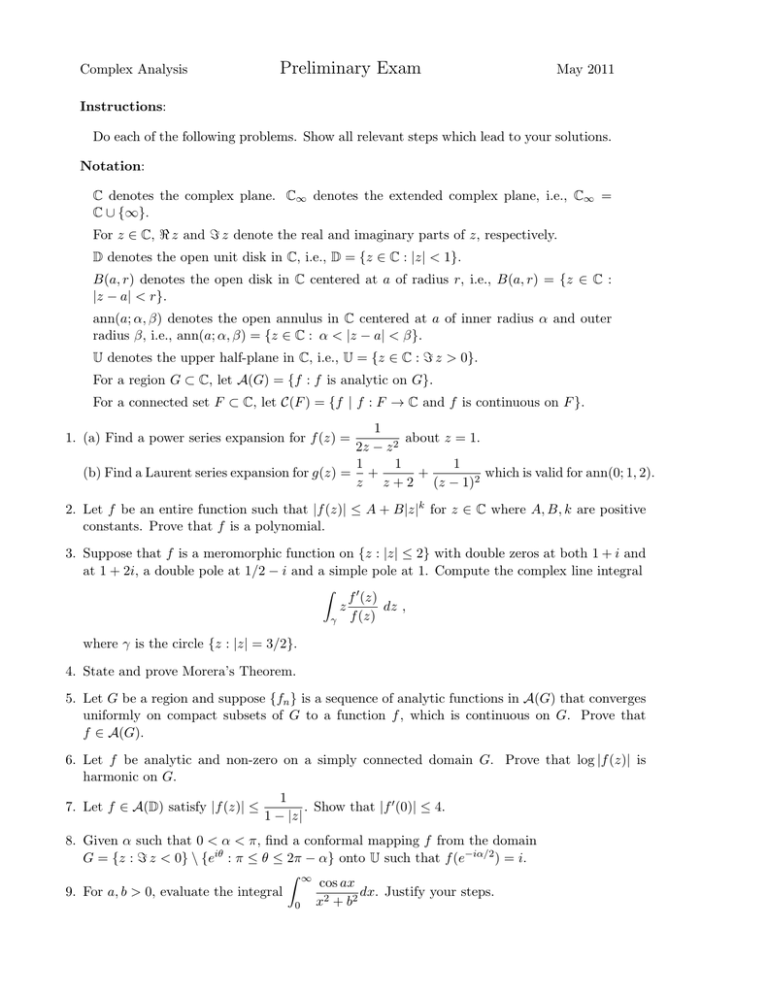
Complex Analysis
Preliminary Exam
May 2011
Instructions:
Do each of the following problems. Show all relevant steps which lead to your solutions.
Notation:
C denotes the complex plane. C∞ denotes the extended complex plane, i.e., C∞ =
C ∪ {∞}.
For z ∈ C, < z and = z denote the real and imaginary parts of z, respectively.
D denotes the open unit disk in C, i.e., D = {z ∈ C : |z| < 1}.
B(a, r) denotes the open disk in C centered at a of radius r, i.e., B(a, r) = {z ∈ C :
|z − a| < r}.
ann(a; α, β) denotes the open annulus in C centered at a of inner radius α and outer
radius β, i.e., ann(a; α, β) = {z ∈ C : α < |z − a| < β}.
U denotes the upper half-plane in C, i.e., U = {z ∈ C : = z > 0}.
For a region G ⊂ C, let A(G) = {f : f is analytic on G}.
For a connected set F ⊂ C, let C(F ) = {f | f : F → C and f is continuous on F }.
1
about z = 1.
2z − z 2
1
1
1
(b) Find a Laurent series expansion for g(z) = +
+
which is valid for ann(0; 1, 2).
z z + 2 (z − 1)2
1. (a) Find a power series expansion for f (z) =
2. Let f be an entire function such that |f (z)| ≤ A + B|z|k for z ∈ C where A, B, k are positive
constants. Prove that f is a polynomial.
3. Suppose that f is a meromorphic function on {z : |z| ≤ 2} with double zeros at both 1 + i and
at 1 + 2i, a double pole at 1/2 − i and a simple pole at 1. Compute the complex line integral
Z
f 0 (z)
z
dz ,
γ f (z)
where γ is the circle {z : |z| = 3/2}.
4. State and prove Morera’s Theorem.
5. Let G be a region and suppose {fn } is a sequence of analytic functions in A(G) that converges
uniformly on compact subsets of G to a function f , which is continuous on G. Prove that
f ∈ A(G).
6. Let f be analytic and non-zero on a simply connected domain G. Prove that log |f (z)| is
harmonic on G.
1
7. Let f ∈ A(D) satisfy |f (z)| ≤
. Show that |f 0 (0)| ≤ 4.
1 − |z|
8. Given α such that 0 < α < π, find a conformal mapping f from the domain
G = {z : = z < 0} \ {eiθ : π ≤ θ ≤ 2π − α} onto U such that f (e−iα/2 ) = i.
Z ∞
cos ax
9. For a, b > 0, evaluate the integral
dx. Justify your steps.
x2 + b2
0
